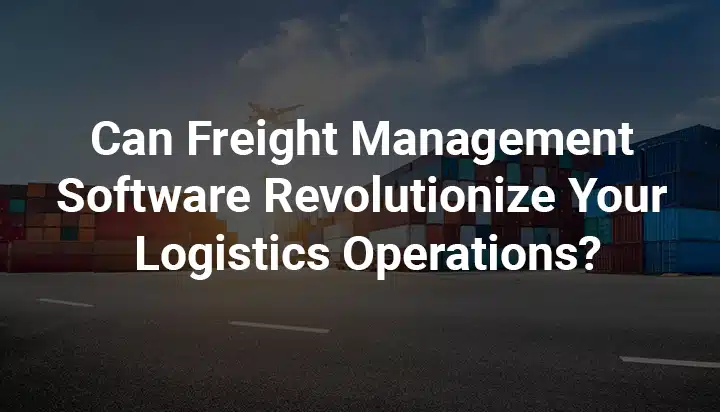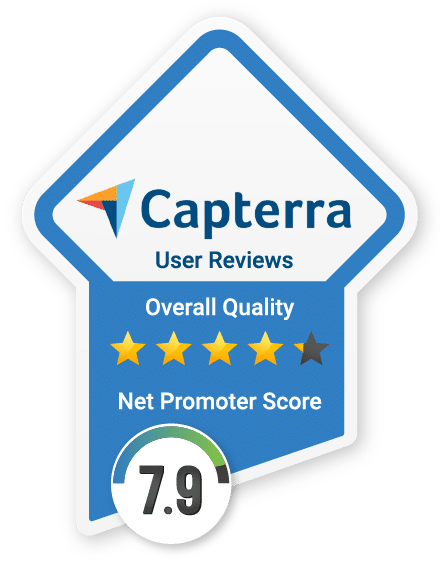Can Freight Management Software Revolutionize Your Logistics Operations
May 29, 2024 CanadaFreight Forwarding Software
Freight management software is crucial in the logistics industry due to its ability to streamline operations, reduce costs, and enhance efficiency. By automating tasks such as route planning, load optimization, and real-time tracking, this software minimizes human error and accelerates delivery times. It also provides comprehensive data analytics, enabling better decision-making and improved customer service. In a country like Canada with vast distances and diverse terrains, such technology is indispensable for maintaining competitiveness and ensuring timely, reliable transportation of goods. Freight management software should integrate different tools seamlessly to ensure seamless operations across Canada’s vast and varied landscape. By connecting various systems such as inventory management, customer relationship management, and accounting, this integration facilitates real-time data sharing and improves coordination. It helps logistics companies enhance operational efficiency and provide better customer service. In a country known for its expansive geography and complex supply chains, such integrated systems are vital for optimizing routes, managing resources effectively, and maintaining a competitive edge. This article will give you insights into the power of freight audit software and its integrated platforms to unlock your organization’s full potential. It is a comprehensive solution that bridges the gap between disparate systems, allowing for the seamless flow of information and the automation of critical business functions. By integrating your existing tools and platforms into reliable freight audit software, you can improve collaboration, and make data-driven decisions with ease. In this article, we’ll explore the power of freight logistics software and integrated platforms, key features and benefits of integrating different tools into your existing freight tracking software, best practices for implementing freight logistics software integration and overcoming challenges in freight management software integration The Power of Freight Logistics Software and Integrated Platforms The power of software integration lies in its ability to transform the way your organization operates. By connecting your various systems and applications, freight logistics software allows you to: By harnessing the power of system integration to your existing freight logistics software, you can position your organization for long-term success. Key Features and Benefits of Integrating different Tools into your Existing Freight Tracking Software By integrating different tools into your existing freight tracking software, you can cater to the diverse needs of businesses across industries. Some of the key features and benefits include: By leveraging these features, organizations can unlock a wide range of benefits, including improved productivity, enhanced collaboration, streamlined operations, and better decision-making capabilities. Best Practices for Implementing Freight Logistics Software Integration Implementing integration to an existing freight logistics software successfully requires a strategic and well-planned approach. Here are some best practices to consider: By following these best practices, you can ensure a successful implementation of integration into the freight forwarding software, unlocking the full potential of this transformative technology within your organization. Overcoming Challenges in Freight Management Software Integration While the benefits of freight management software integration are substantial, organizations may face various challenges during the implementation and adoption process. Here are some common challenges and strategies to overcome them: By addressing these challenges proactively and leveraging the capabilities of freight management system integration, organizations can overcome the hurdles and unlock the full potential of this transformative technology. In today’s fast-paced, data-driven business landscape, the ability to seamlessly integrate your systems and applications is crucial for driving operational efficiency, enhancing collaboration, and unlocking new growth opportunities. Newage is globally recognized for providing cutting-edge technology solutions for almost 2 decades to manage the diverse requirements of freight forwarders. Headquartered in Dubai, with multiple offices in India, the UK, and the USA, the domain experts address the challenges associated with the freight and logistics industry, and thus, offer both freight management software and customized digitized back-office services to customers. Their flagship product, NewageNXT is modern, responsive, and intuitive freight management software. By harnessing the power of NewageNXT integration, you can break down silos, streamline your workflows, and gain a comprehensive view of your data – all while reducing IT complexity and enhancing your organization’s overall productivity and competitiveness. Whether you’re looking to automate your business processes, improve collaboration across departments, or make more informed, data-driven decisions, NewageNXT integration can be the strategic solution you’ve been searching for. Take the first step towards unlocking your organization’s full potential by scheduling a consultation with NewageNXT integration experts today. Together, you can explore the best solutions to drive your business forward and position you for long-term success.


